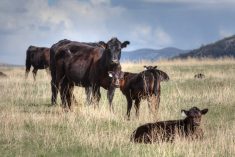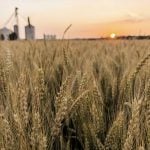The province will continue rolling back education property taxes this year—though not by as much as initially expected.
In its 2022-23 budget, released April 12, the Manitoba government pledged to increase rebates for farm and residential properties to 37.5 per cent from 25 per cent.
In the 2021 budget, the province had intended to increase the rebate to 50 per cent in 2022, but would review that amount during future budgets.
Read Also

Manitoba sunflower plant gets local owners
Scoular’s sunflower and bird feed plant in Winkler, Man., bought by Orenda Commodity Services Ltd. out of Ste. Agathe.
The move will cost the province over $100 million in revenue, budget documents say.
Keystone Agricultural Producers (KAP) welcomed the announcement.
“The announcement of increasing the Education Property Tax Rebate to 37.5 per cent for 2022 and 50 per cent for 2023 is welcome news for Manitoba farmers”, said KAP president Bill Campbell in a statement. “KAP will continue to lobby for the complete removal of the education property tax from all farm property.”
Manitoba’s National Farmers Union (NFU) was less optimistic.
“That’s an indication that rural schools should be very concerned,” said Ian Robson, a NFU board member for Manitoba.
The NFU opposed the education property tax rollback because of concerns it would leave the education system poorly funded and that kids’ education would suffer, according to an April 2021 op-ed.
“We need those kids in rural areas,” Robson said. “We need more farmers and not fewer farmers.”
Education property tax revenue also remains frozen at a 2020 amount, budget documents say.
In its 2021 budget, the province promised education funding would not drop despite the rollback on taxes and alluded to paying the deficit out of general revenue.
The province will bump up spending on the Department of Agriculture to $495 million from a budgeted $367 million last year.
The department ran over budget by an estimated $454 million last year “due to higher claim payouts as a result of the 2021 drought.” This will be partially offset by an increase in revenue, the province said.
KAP also praised the province for a capital investment of “much needed funding” into highway infrastructure.
In a new “Three Year Capital Plan,” the province pledged investment into key trade and commerce routs, pinpointing the rehabilitation of Provincial Trunk Highways 23 and 5, and enhancements to St. Mary’s Road (Provincial Road 200) and McGillivray Boulevard (PTH 2) interchanges.
The budget also includes a $111 million investment in roads and highways through the Manitoba Restart Program, which was announced in the 2020 budget. In total, capital investment into Highways, Infrastructure and Airport Runways is slated at nearly $474 million this year, up from $404 million last year.
Manitoba’s Conservation and Climate fund will increase to $1.5 million from $1 million in 2021. The fund supports projects to reduce greenhouse gas emissions, promote sustainable development and address the effects of climate change.
“Interest in the merit-based program has increased since its launch and the growing portfolio of projects are helping to advance Manitoba’s core climate objectives,” budget documents say.
Robson noted that yet more effort should go into climate issues—for instance, projects to promote soil organic carbon.
Blowing soil he saw during winter illustrates the need for promotion of cover crops and poly crops, he added. Farmers are already doing these things on their own dime, he said, but “these kinds of things need more encouragement.”
KAP praised investments into childcare—part of implementation of a federal-provincial deal to open up more early learning and child care spaces and to support an average of $10 per day care.
“Access to affordable and accessible childcare in rural areas has been an ongoing concern for young Manitoba farmers,” said Campbell.
KAP also said in light of the current labour shortage, it supports a $5 million investment to attract newcomers to the province. It added KAP looks forward to insights from the new Manitoba Immigration Advisory Council, which it said it hopes will lead to additional investments in labor and immigration.


















